Fashion in Nigeria has always been diverse, reflecting its many ethnic groups, religions, and cultures.
Nigeria is made up of several ethnic groups, majority of which are the Igbo, Hausa and the Yoruba. Within these ethnic groups are several tribes numbering 371.
The Hausa-Fulani make up 29 percent of the population, followed by the Yoruba with 21 percent, the Igbo with 18 percent, the Ijaw with 10 percent, the Kanuri with 4 percent, the Ibibio with 3.5 percent, and the Tiv with 2.5 percent.
Dressing patterns shows where,one is from. It tells more about their cultures and their traditions.
You will find some of them fascinating even as a foreigner. Nigeria has some impressive traditional attires.
We have put together some ethnic groups in Nigeria with their traditional attires:
Edo People
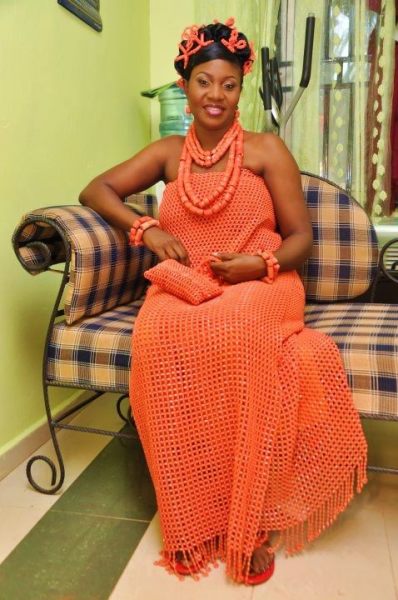
The Edo People are made up of the, Afemais, Esan,Owans, Akoko etc. They occupy South/Mid-Western Nigeria. They are the descendants of the people who founded the ancient and mighty Benin Empire.
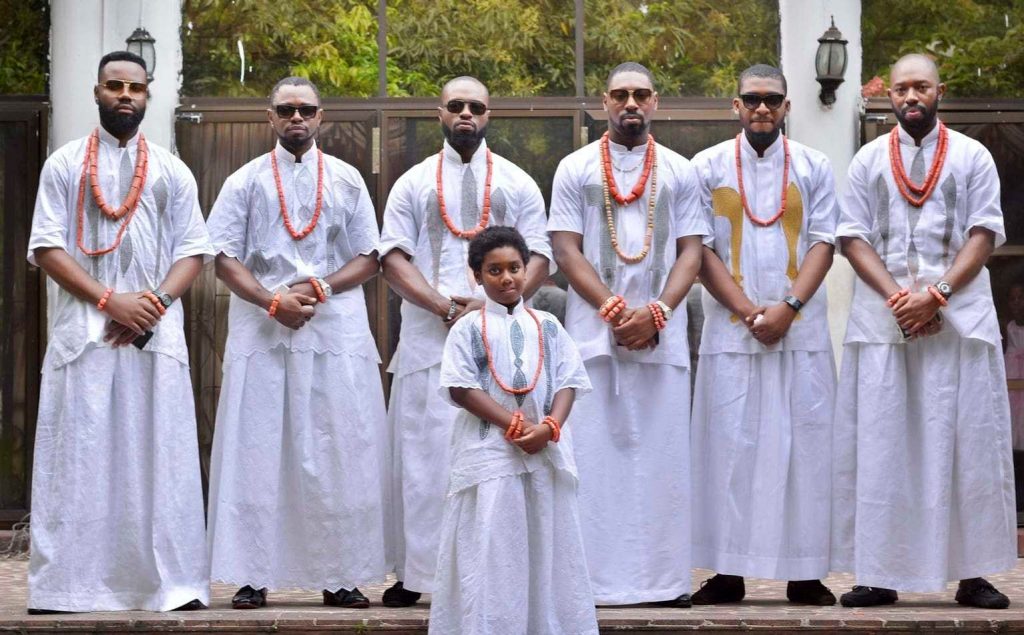
The basis of the economy is farming, with the main food crops being yams, cassava, plantains, and cocoyams, as well as beans, rice, okra, peppers, and gourds.
Edo traditional clothing has lots of color and the people often wear beads, which symbolize royalty and freedom.
Coral beads worn mostly by Edo women of Nigeria are symbolic of power, prestige, wealth, royalty and beauty.
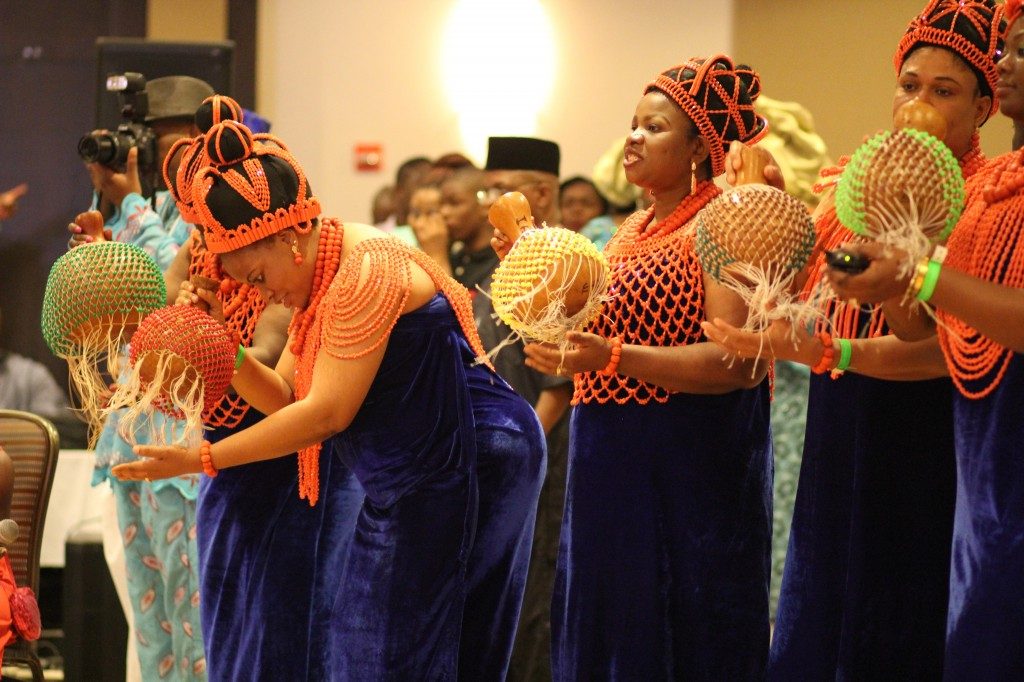
They are worn mostly during Edo traditional weddings and cultural events.
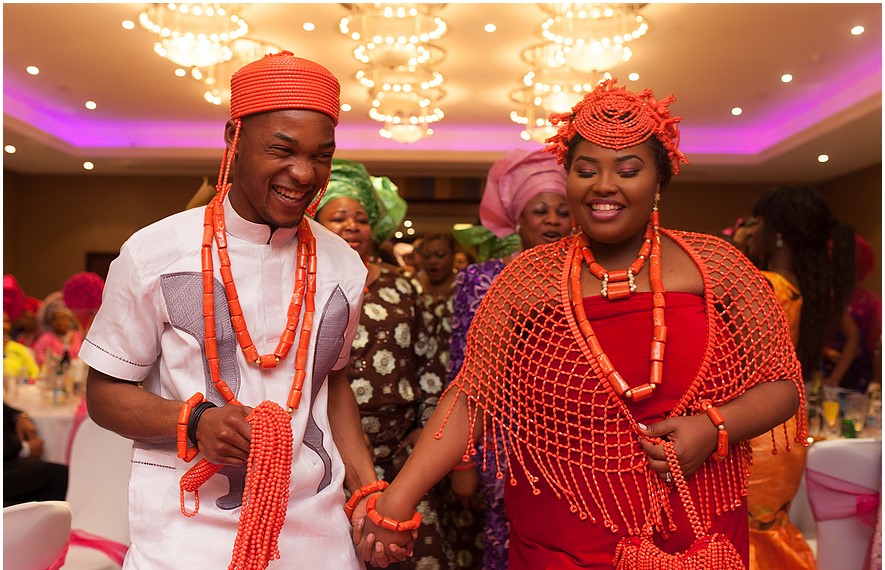
Tiv/Idoma/Igede People
The Tiv people, Idoma people and Igede people are major ethnic groups in Benue State. They occupy South Eastern part of Nigeria. Benue State is the nation’s acclaimed food basket because of its rich agricultural produce which include Yam, Rice, Beans, Cassava, Sweet-potato, Maize, Soybean, Sorghum, Millet, Sesame, cocoyam etc.
The Tiv people traditional attire are black and white striped material.
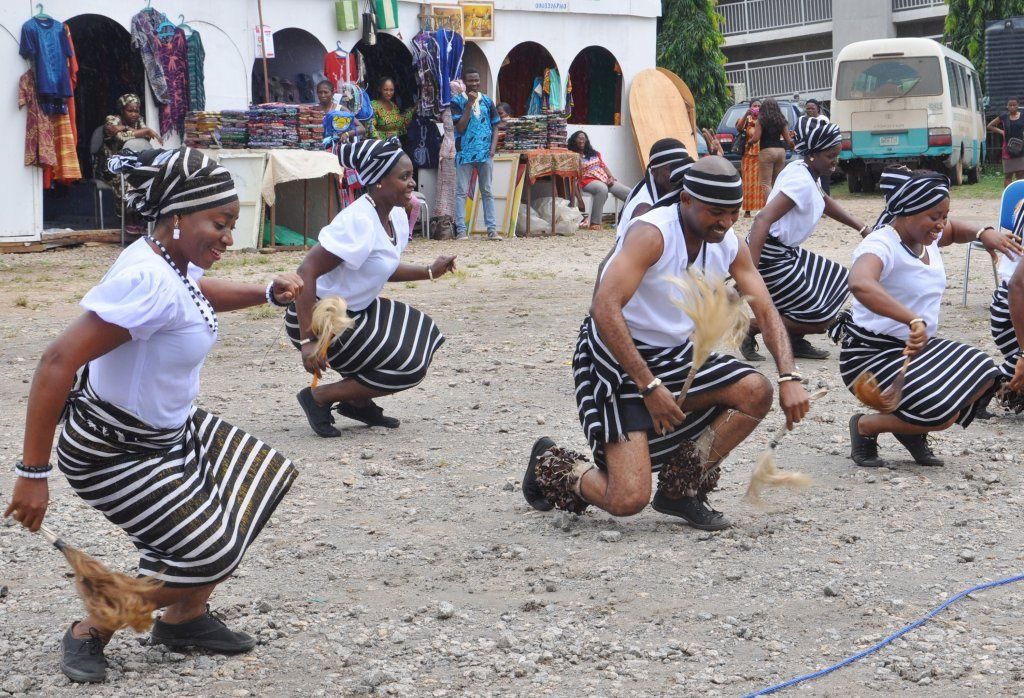
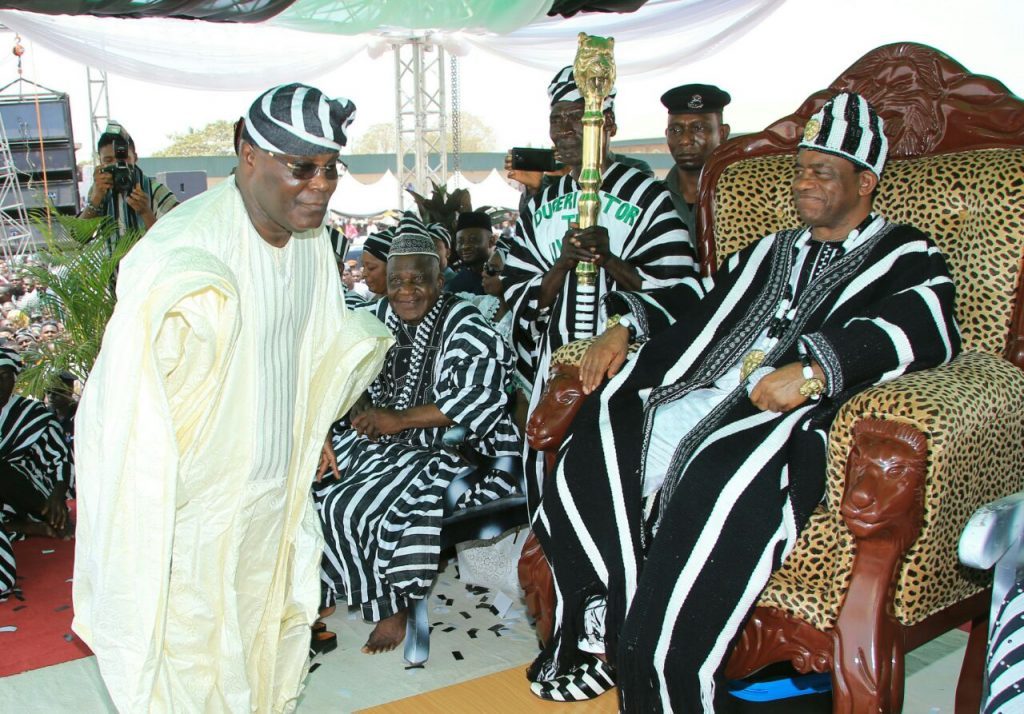
The Idoma people traditional attire are red and black striped material.
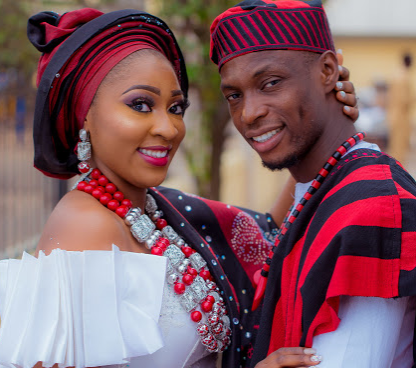
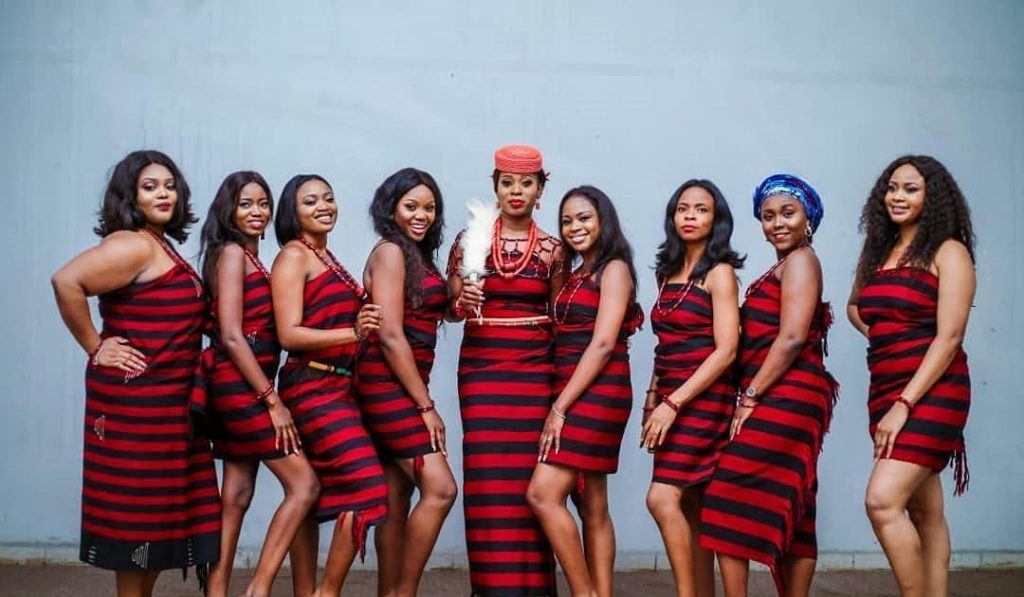
The Igede people traditional attire are black,blue and white striped material.
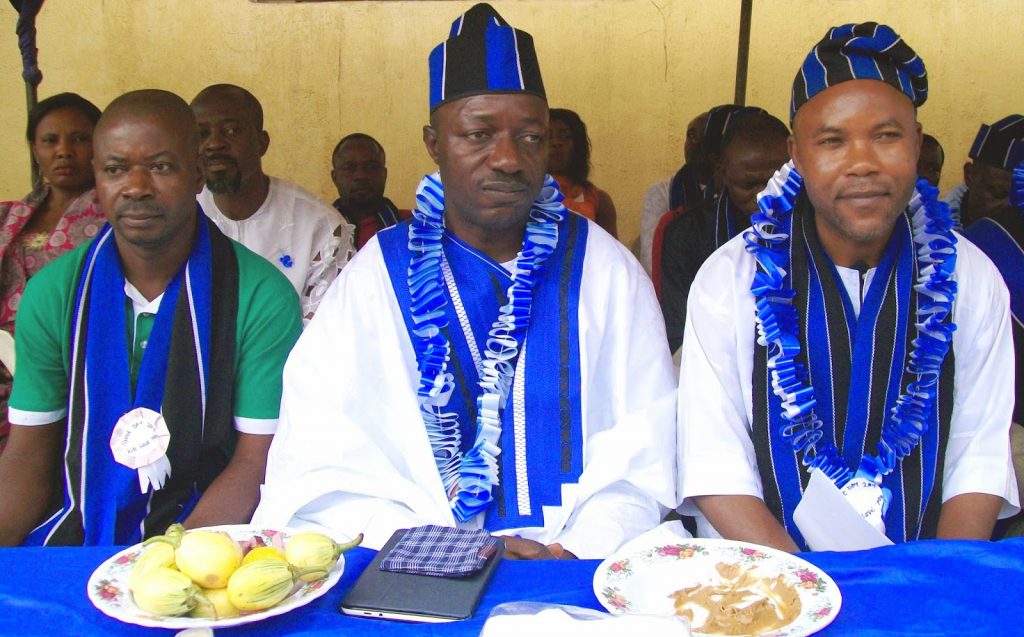
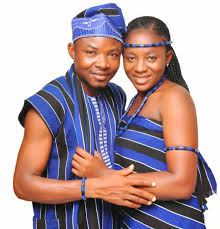
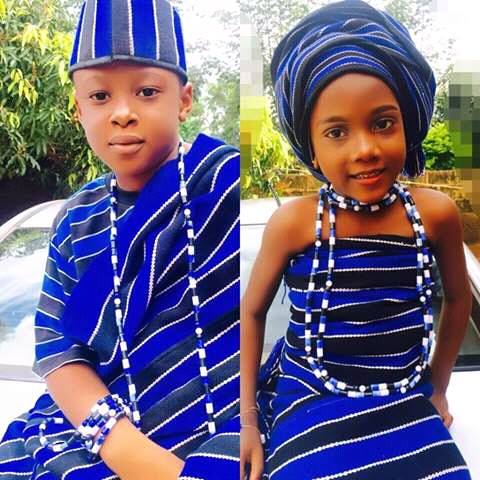
Urhobo/Isoko People
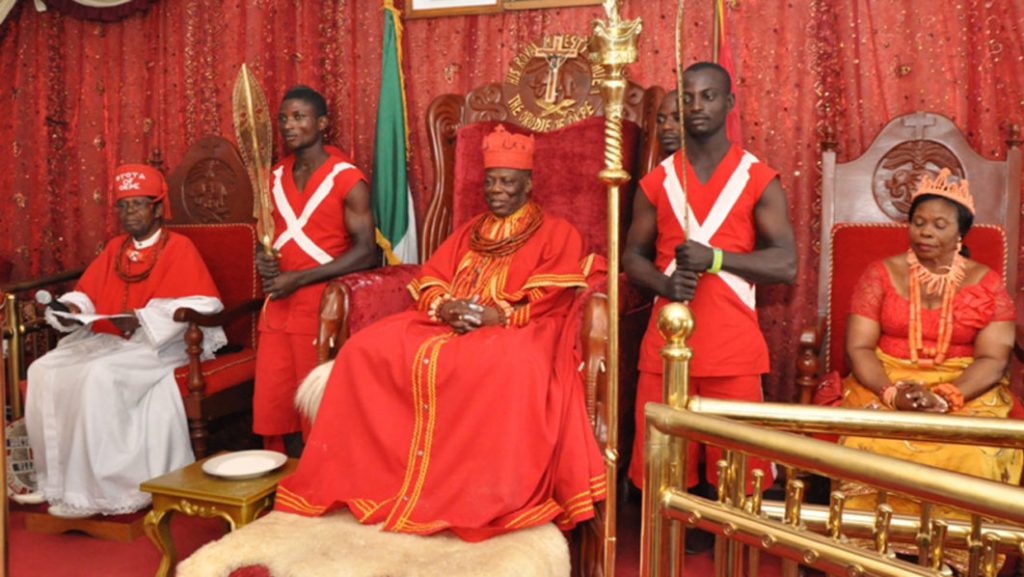
The Urhobo people and Isoko people are major ethnic groups in Delta State, migrants from the Edo nation, according to oral history. Combined, they make up the fifth largest ethnic group in Nigeria.
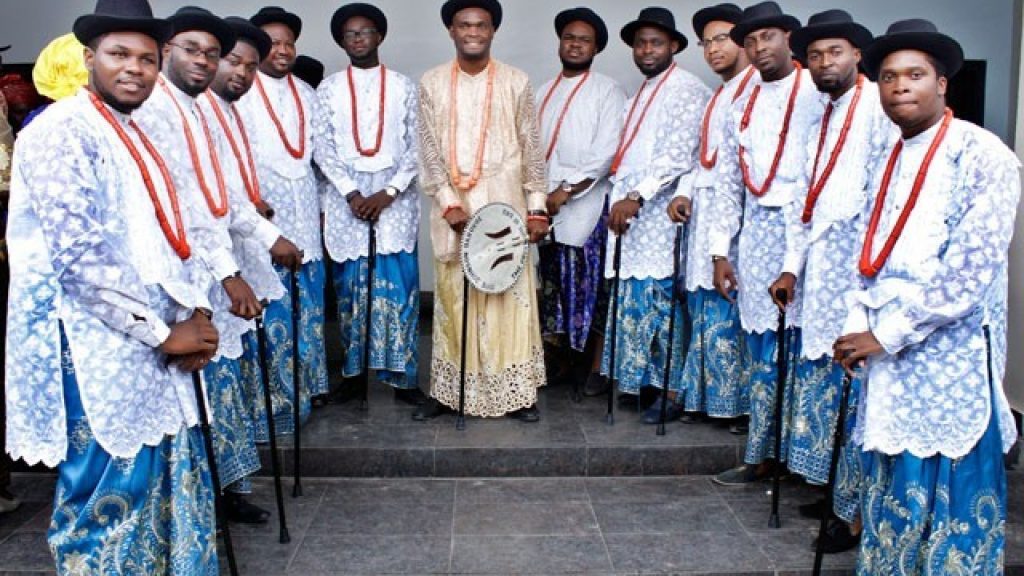
They have very similar languages, cultures, and traditional clothing. Many wear Georgian wrappers and lace shirts, accessorized with cowboy hats, walking sticks, and beads on the hands and neck.
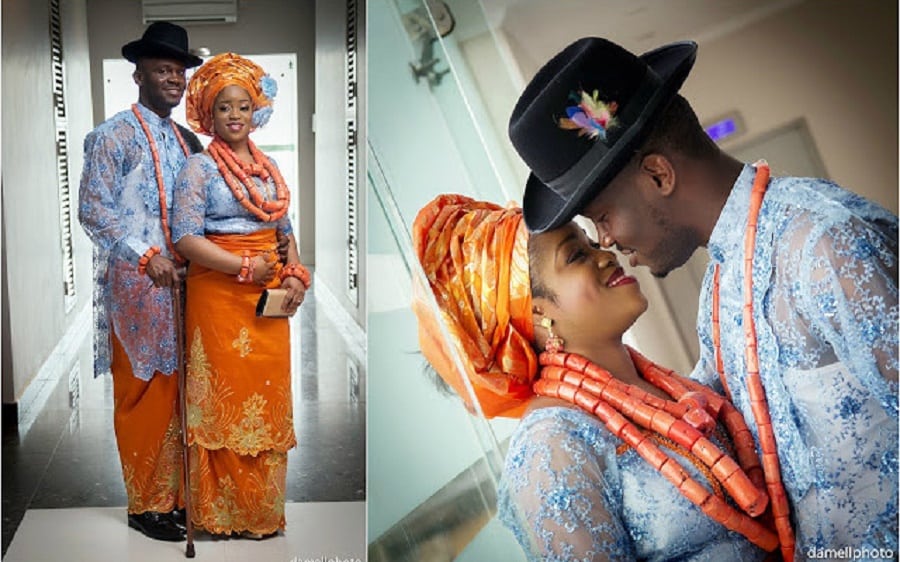
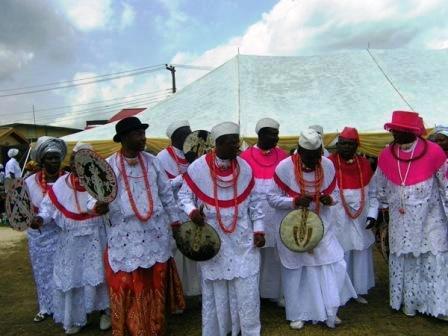
Yoruba People
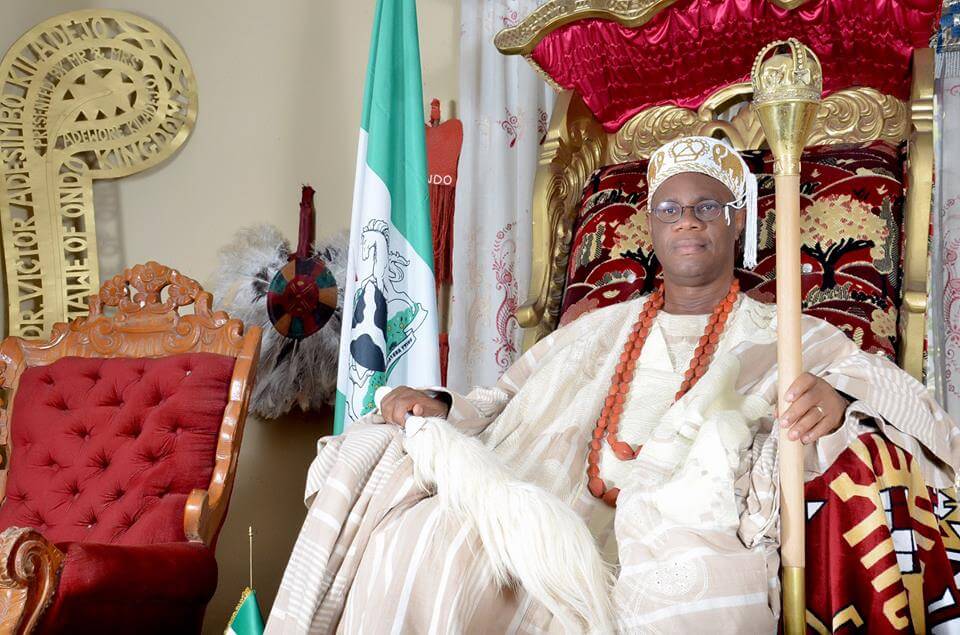
The Yoruba People occupy South Western and North-Central Nigeria, living in such states as Lagos, Oyo, Ekiti, Kwara, Kogi, Ondo, Ogun, and Osun. They are one of the three major ethnic groups of Nigeria.
The Yoruba men traditionally wear a “Buba” and “Sokoto”, sometimes with an “Agbada” (Aṣo-Oke) and a “Fila”, a traditional cap. Women on the other hand wear a “Buba” and “Iro” and tie a “Gele” over their heads and “Ipele” over the shoulders.
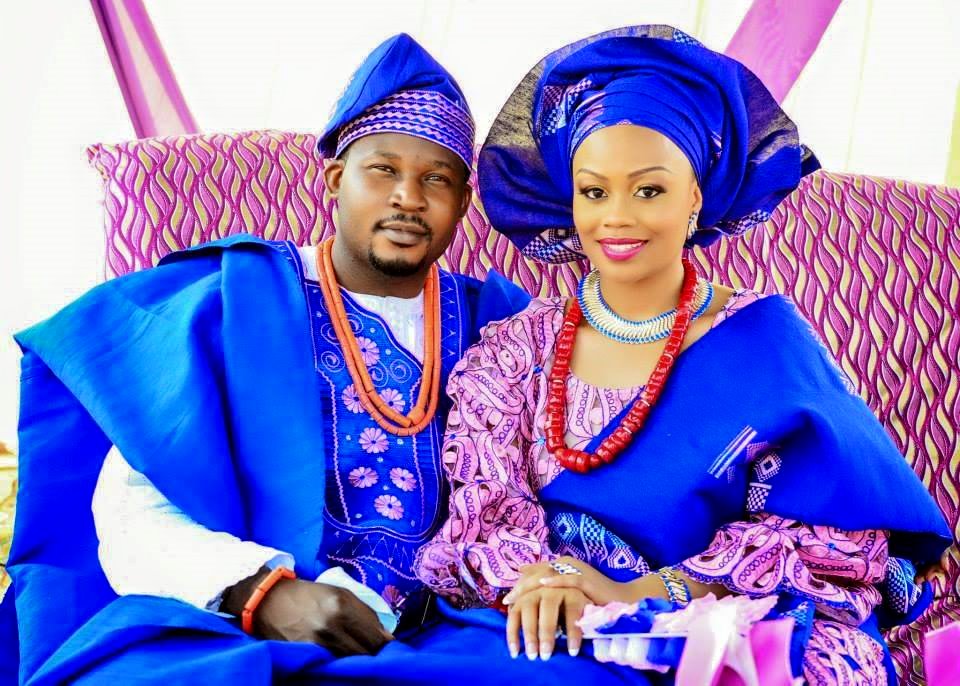
The Gele and Ipele must match. “Buba” is like a shirt for men and a low round neck top for women.
Most of the Yoruba people take part in farm work. The men grow foods such as corn, yams, staples, nuts, and cocoa which is a major cash crop. Men were also traders and craftsmen as well. Women did less work on the farms and their status on what they did depending on their husband’s status.
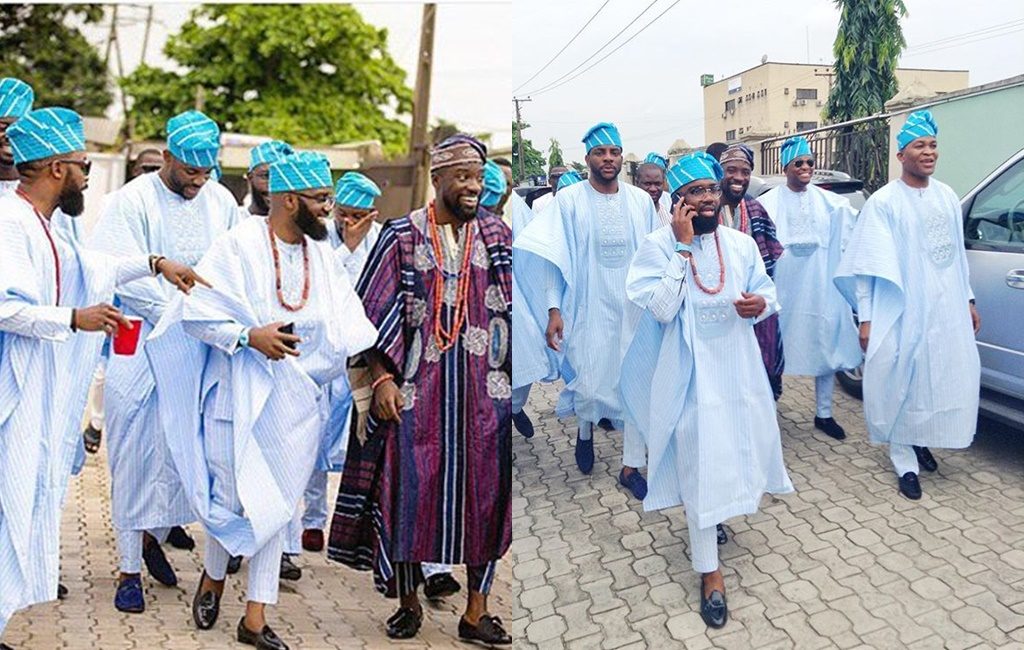
The people practice a multiple of cultural skills that are useful in life which are pottery, bead work, weaving, metalwork, and mask making. The Yoruba were known for their sculptors, beautiful clothing designs and patterns
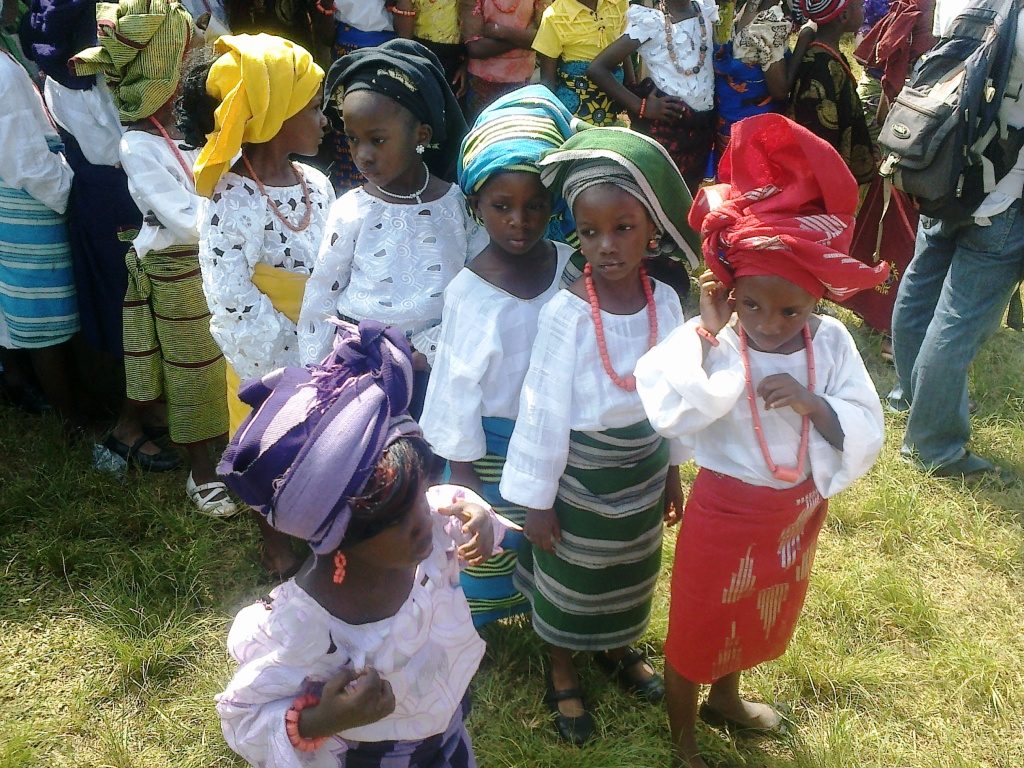
Igbo People
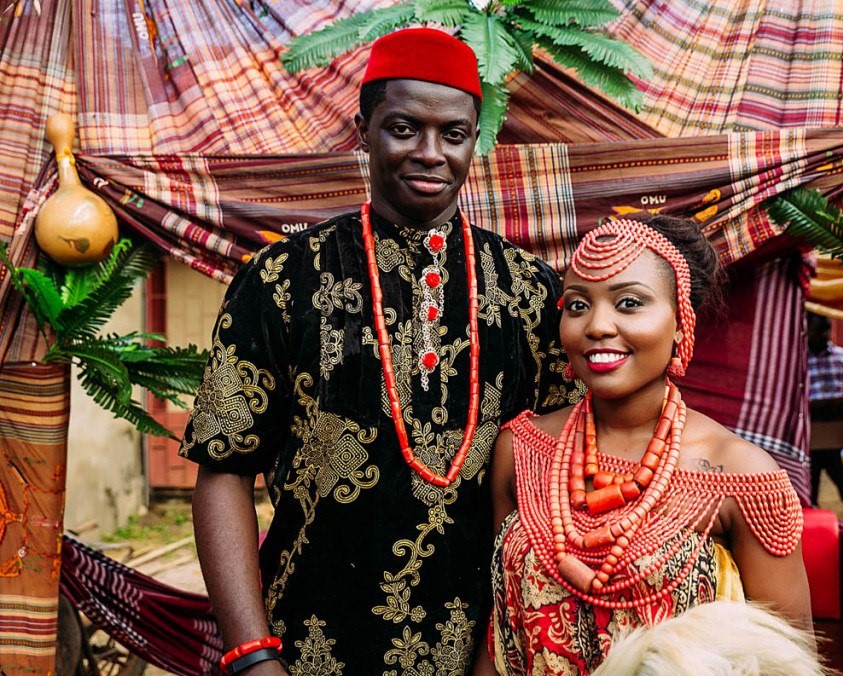
The Igbo People occupy South Eastern and parts of South-Southern Nigeria, living in such states as Anambra, Enugu, Imo, Abia, Ebonyi, Delta, and Rivers. The Igbo are one of the three major ethnic groups of Nigeria. The stereotype about Igbos is that they do well in business.
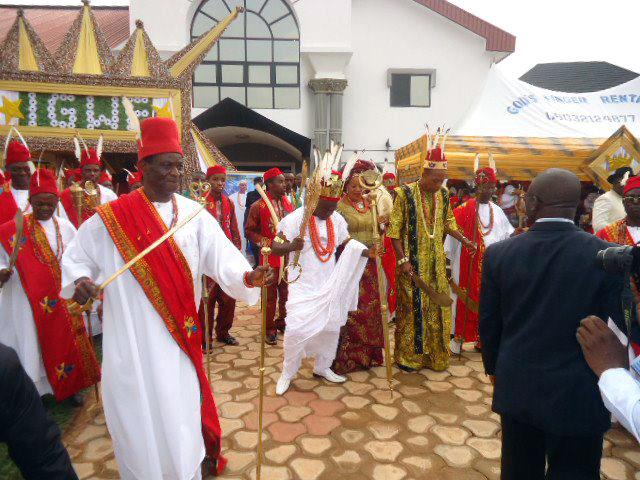
Igbo people work mostly as craftsmen, farmers and traders. With agriculture being the most dominant activity. The most important crop is the yam. Other staple crops include cassava, maize, melons, okra, pumpkins, beans etc.
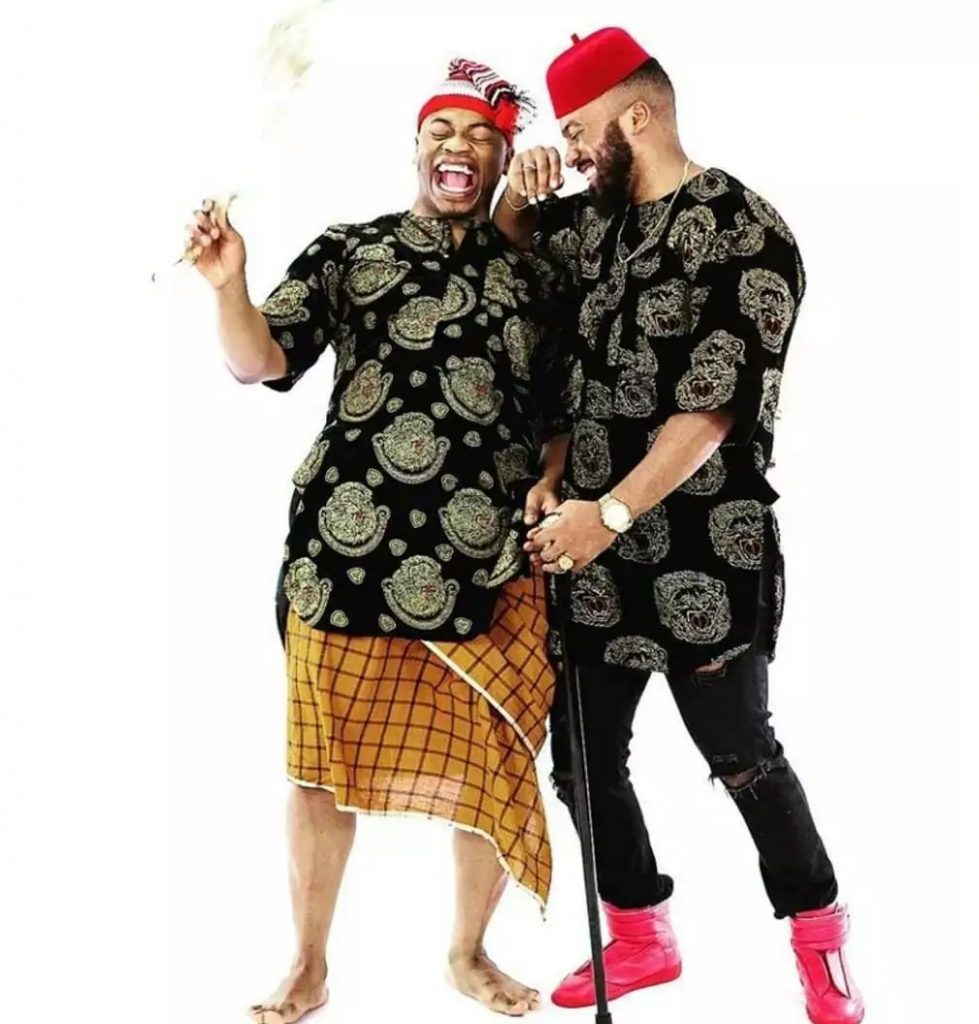
The Igbo women dress like the Edo people, with beads. Some Igbo groups tie a white wrapper across their shoulders. Their men wear IsiAgu, wrapper and a red cap (Okpu agu).
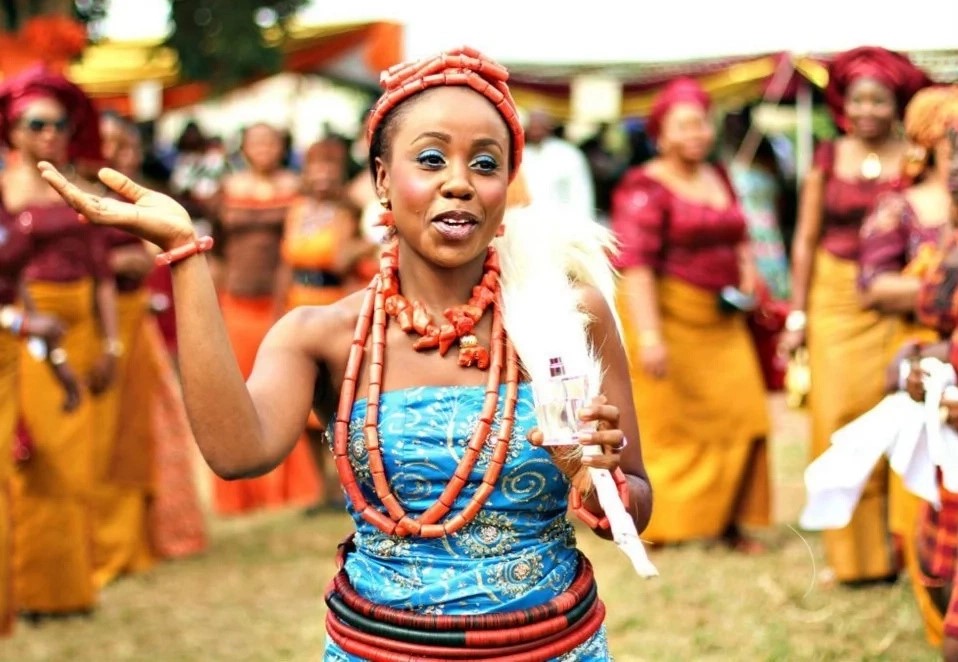
Hausa/Kanuri/Fulani People
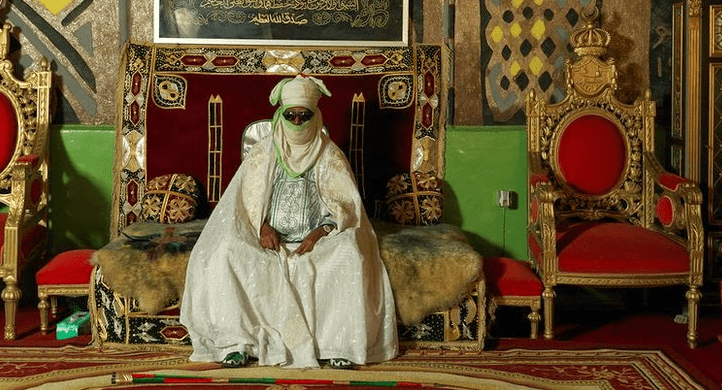
The Hausa people, Kanuri people, and Fulani people occupy Northern Nigeria. They have similar cultures, clothing, and languages. They are the largest grouping in Nigeria and make up the major ethnic group. The men dress with a Kaftan or Jalabiya.
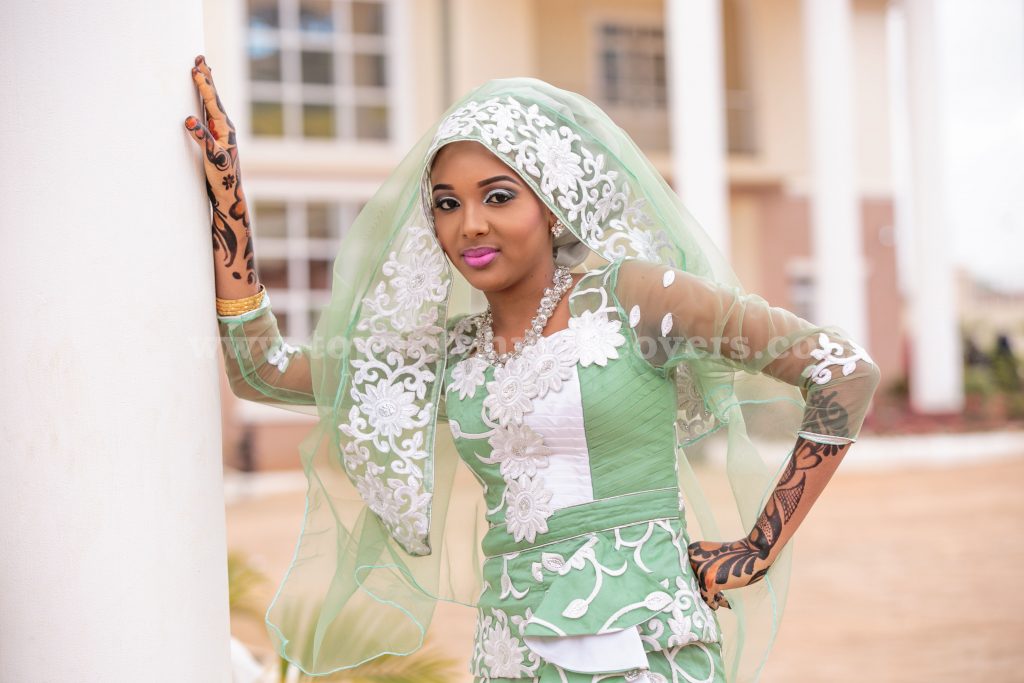
These people are mainly farmers and cattle herders. Islam is the major religion of the group.
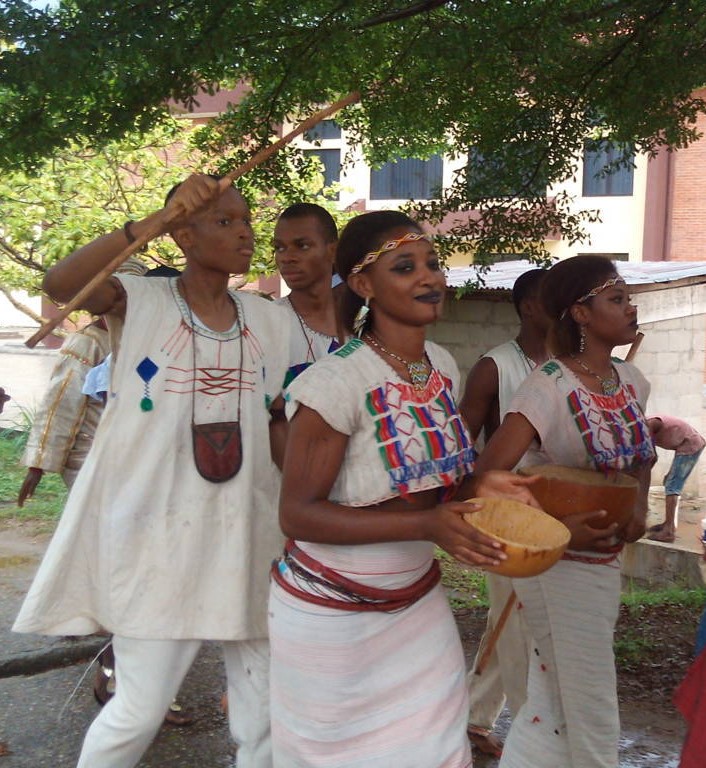
The women can be identified by wrappers called zani, made with colourful cloth known as atampa or Ankara, accompanied by a matching blouse, head tie (kallabi) and shawl (Gyale).The Fulanis are unique in their dressing.
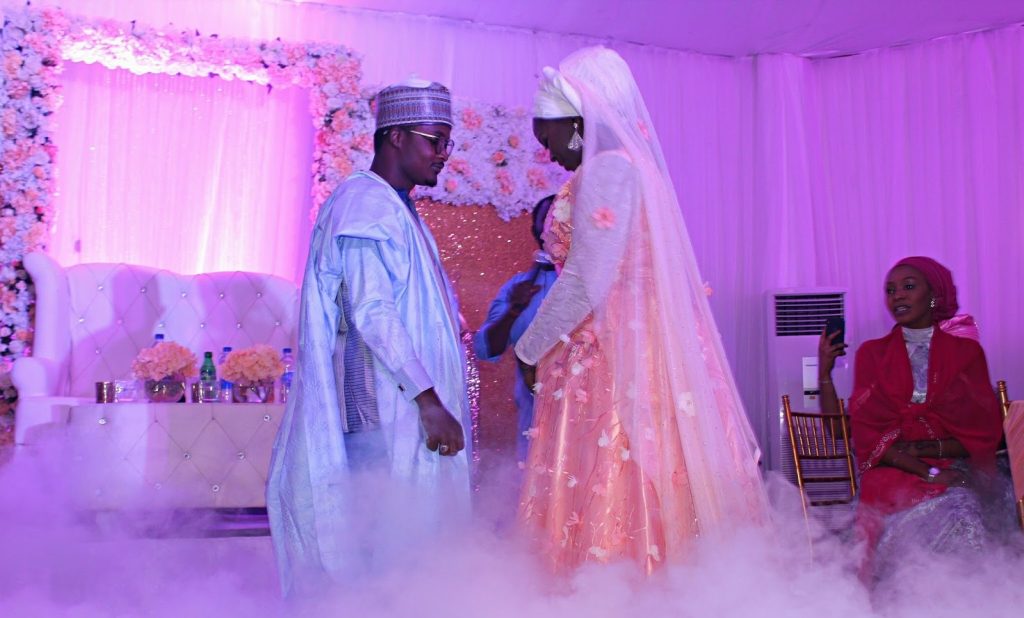
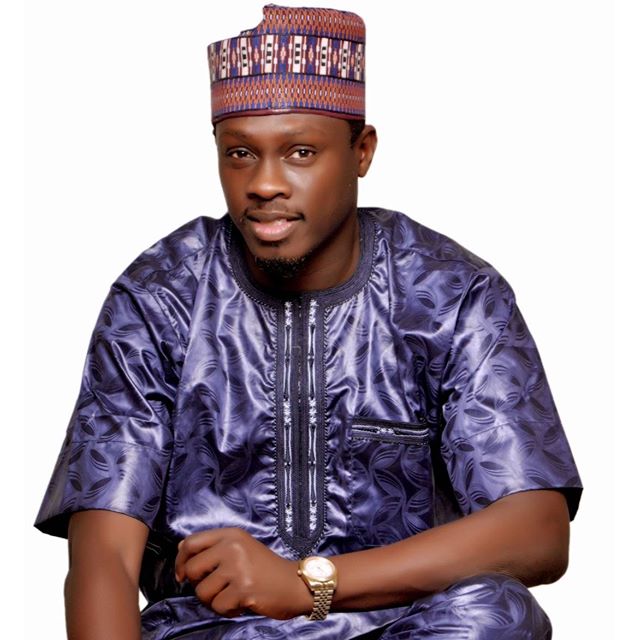
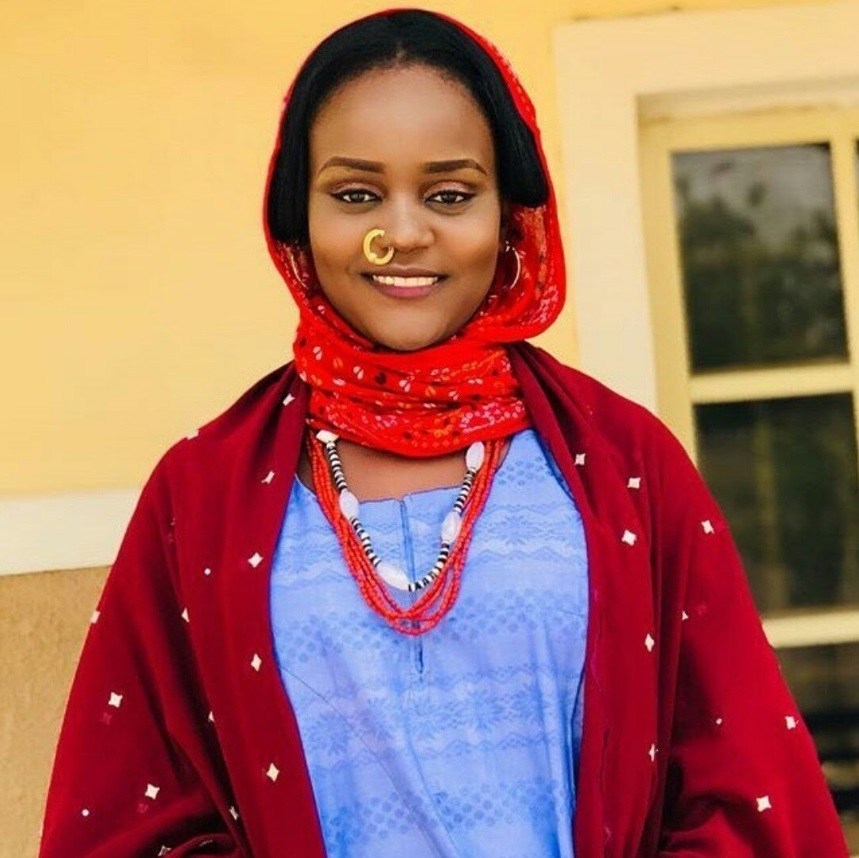
Kanuri Bride
Efik/Ibibio/ Anaang/Eket People
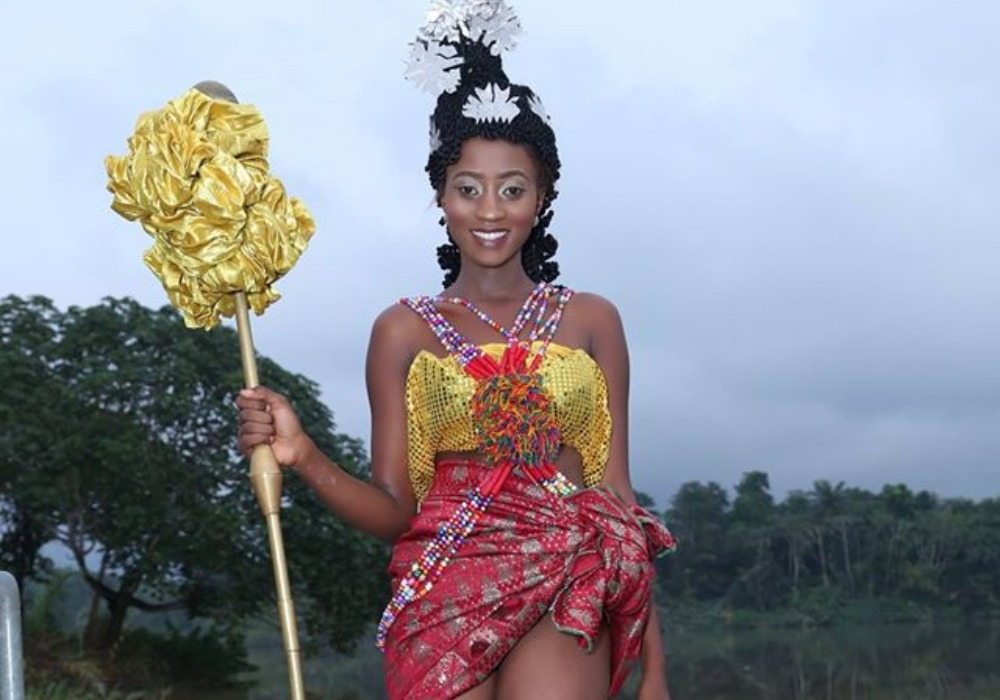
The Efik, Anaang, Eket and Ibibio people occupy Akwa-Ibom and Cross-River States in South-Southern Nigeria, migrants from Cameroon in pre-colonial times, according to oral tradition.
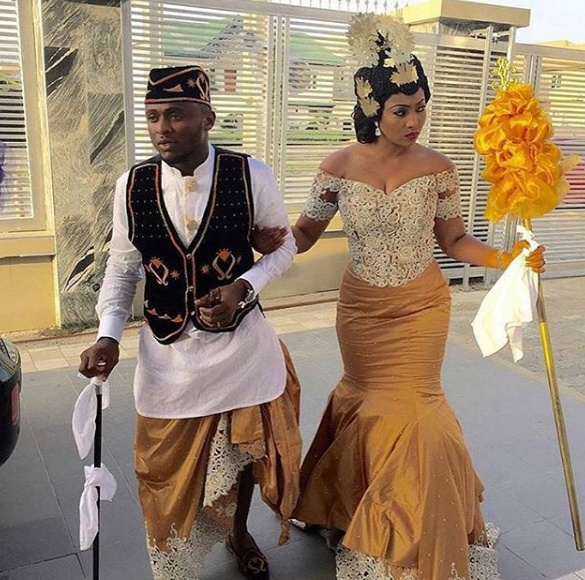
Mainly rainforest cultivators of yams, taro, and cassava, the Ibibio export mostly palm oil and palm kernels. They are noted for their skillful wood carving.
Their dress resembles that of the urhobo people, with some major differences.
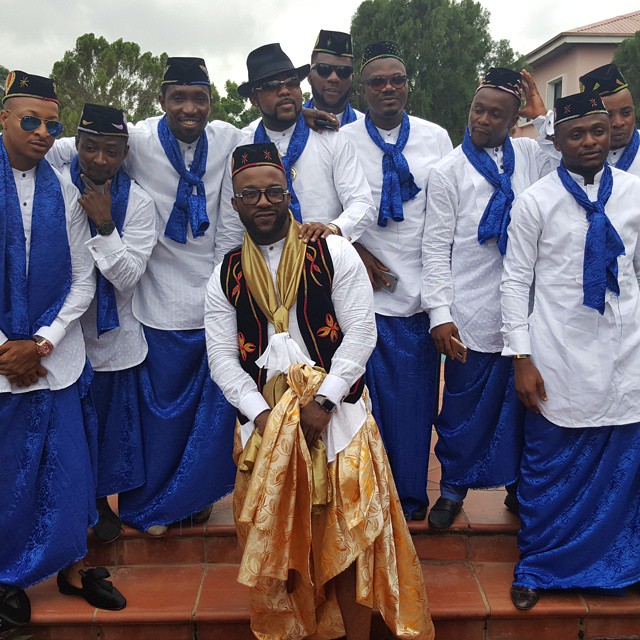
Ijaw People
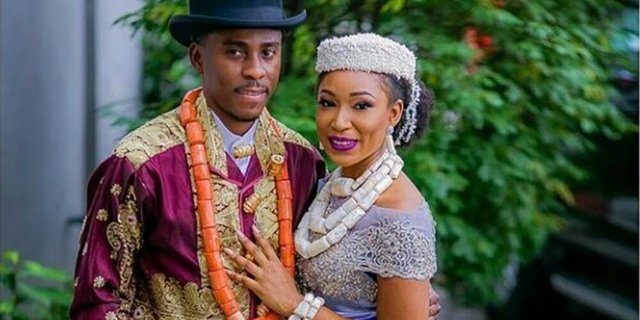
The Ijaw people occupy Bayelsa, Rivers, Delta, Akwa-Ibom and Ondo States. They make up the fourth largest ethnic group in Nigeria. They have cultural similarities with the neighbouring Itsekiri and Urhobo/Isoko people and dress like them.
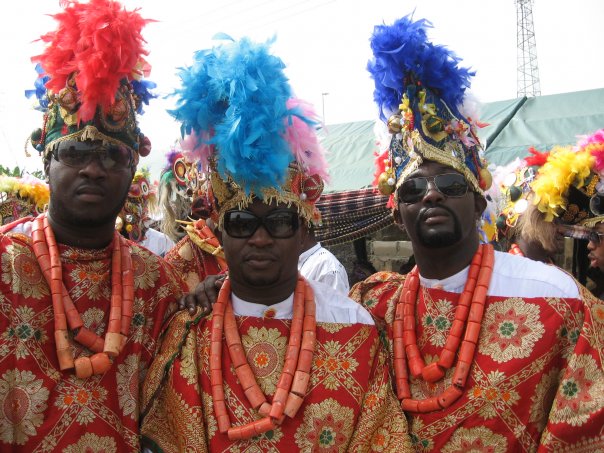
The occupation common among the Ijaw has traditionally been fishing and farming.
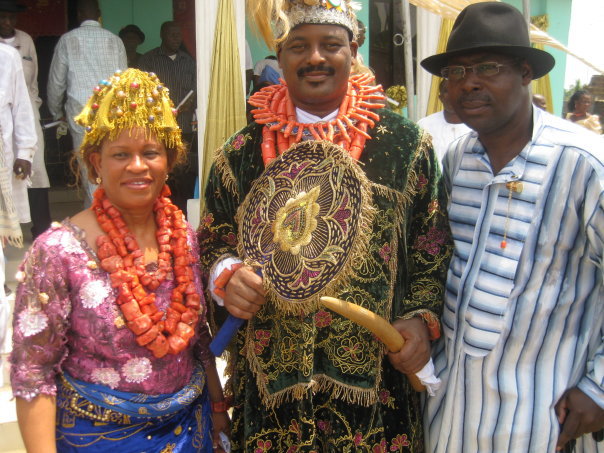
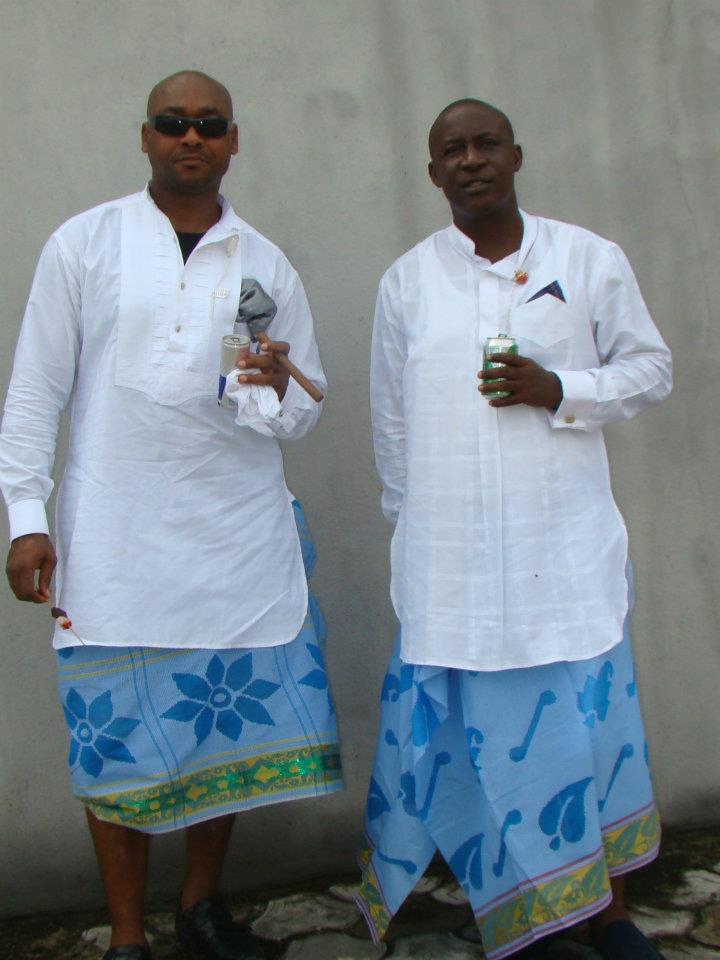
Itsekiri People
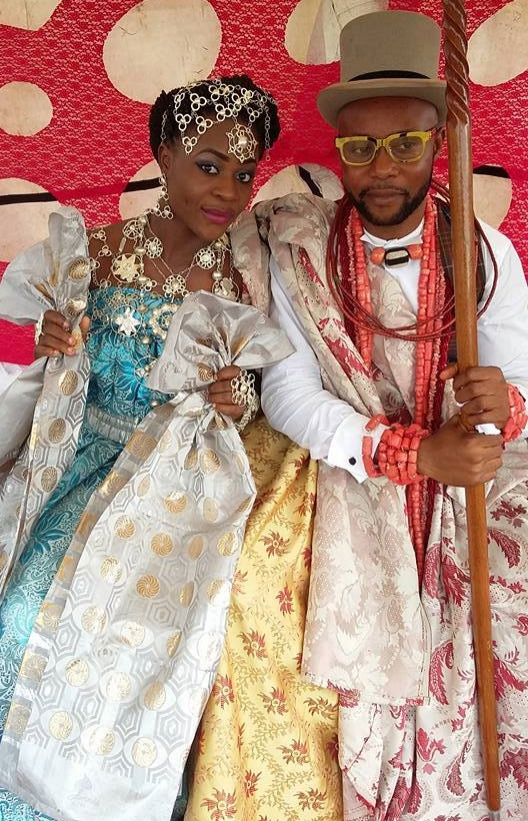
Itsekiris Couple
The Itsekiris are a minority ethnic group whose people occupy Delta South. Itsekiris live in Warri North, Warri South, Warri South West, and Sapele.
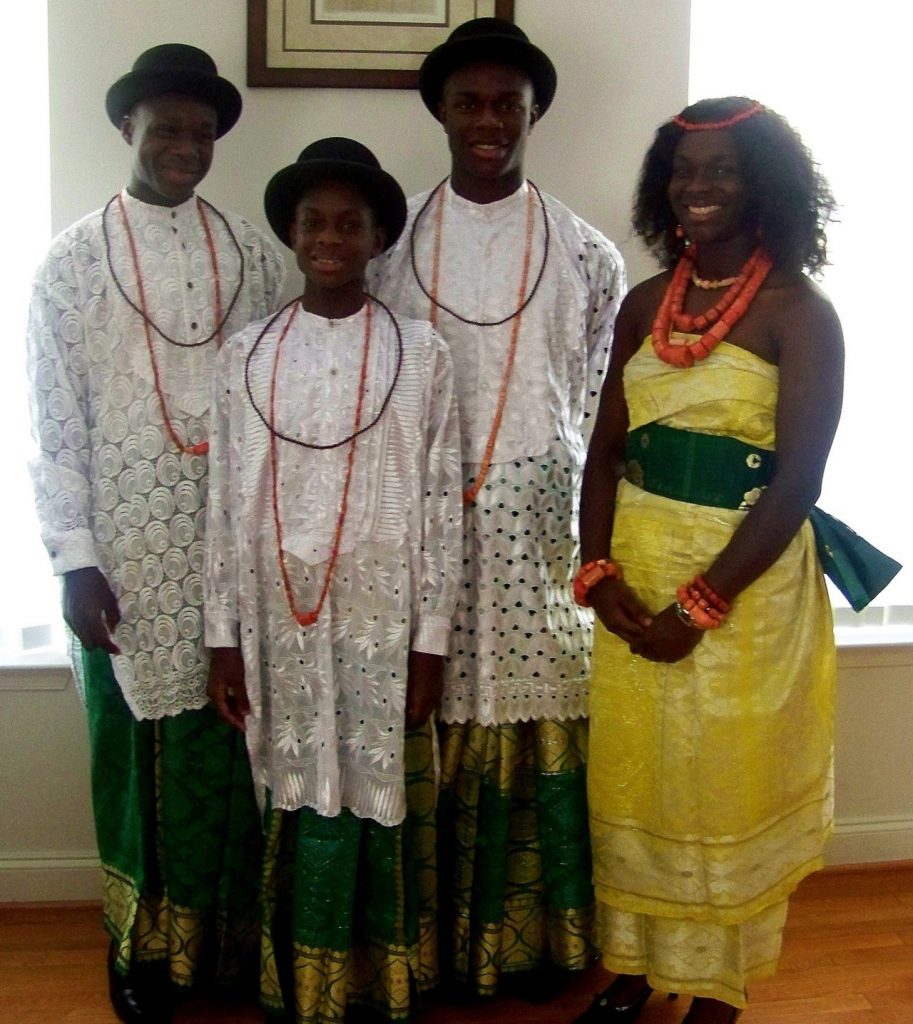
Itsekiris Royalty
They peculiar and unique riverine people who were traditionally fishermen and skillful traders.
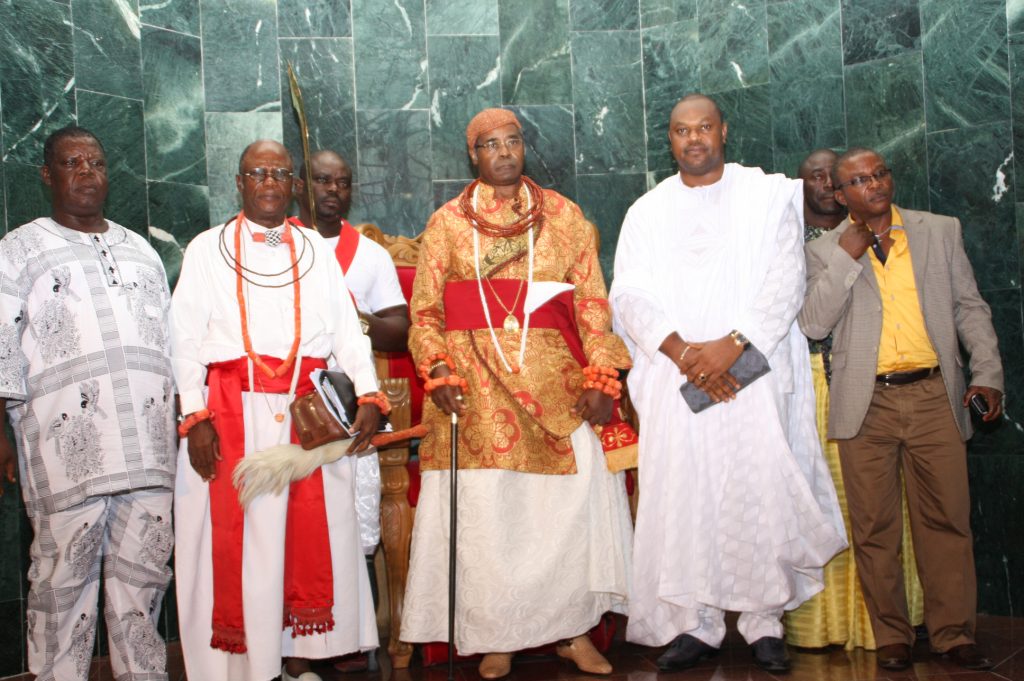
Itsekiris Chiefs
Itsekiris dress like the Urhobos and Ijaws. Their royalty put on white with a colored girdle depending on the occasion.
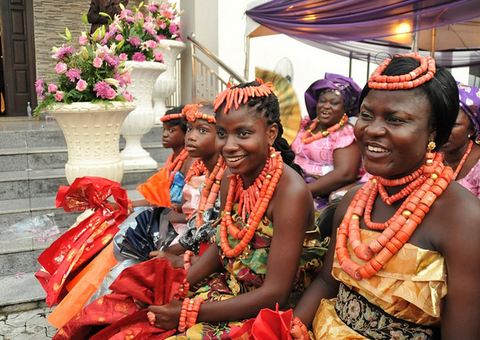
Itsekiris Women
Igala People
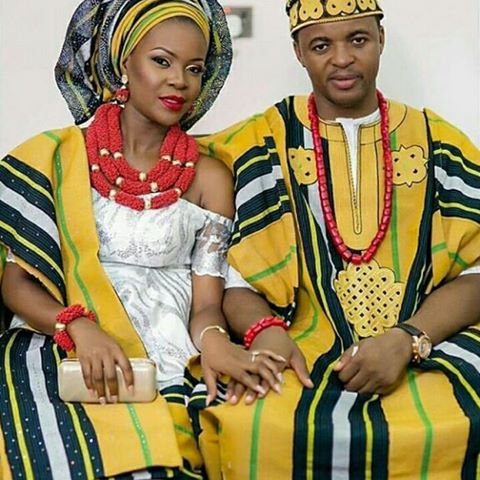
The Igala ethnic group is densely populated in their settlements around the major towns such as Idah, Ankpa, Anyigba and other part of Kogi State. They are also found in Edo, Delta, Enugu and so on.
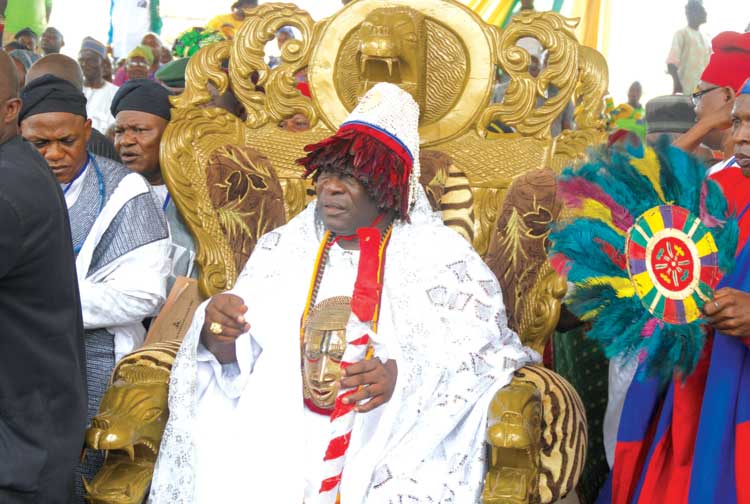
It’s believed that the predominant colors in their clothes are yellow and black. Igala cultural dressing can also be accompanied with blue/green/white stripes.
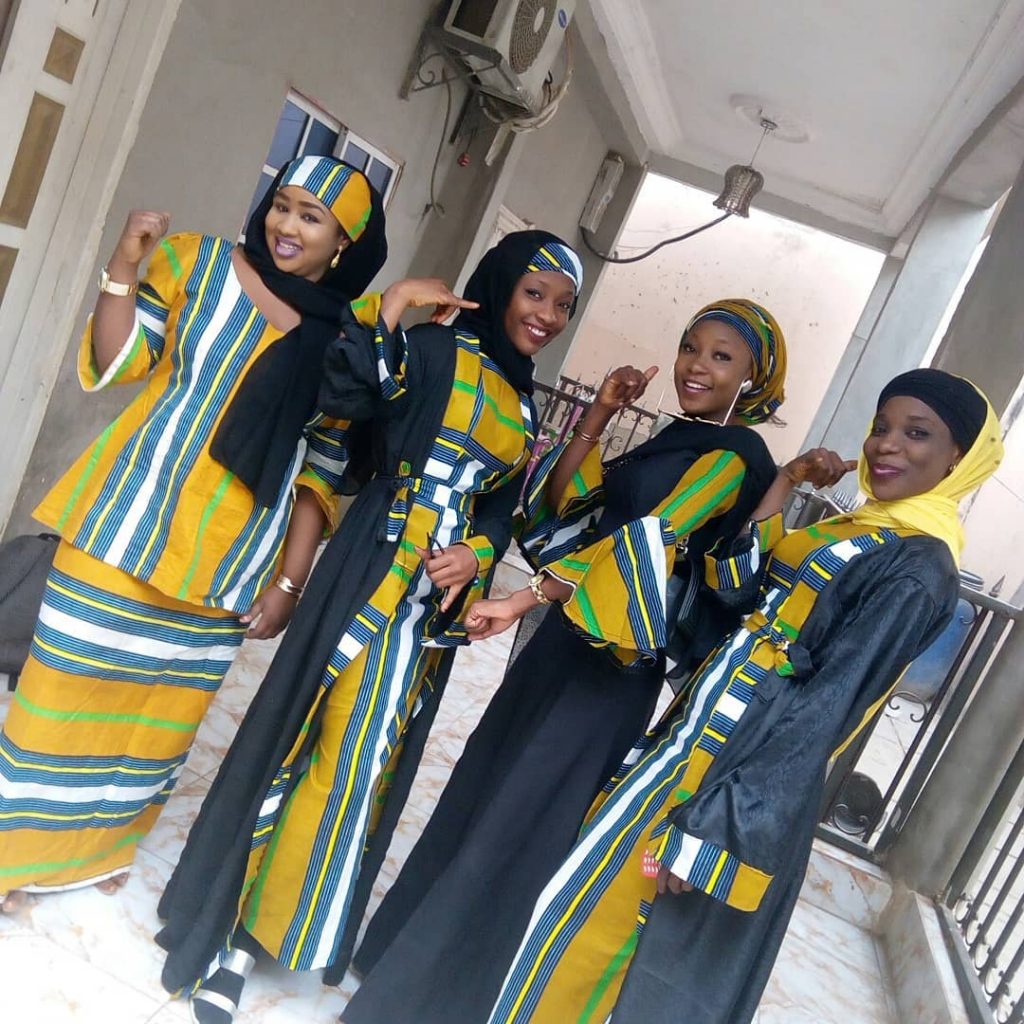
According to the elders of Igala tribe, black and yellow colours means a lot to the history of Igala Kingdom. Black colour shows the richness of Igala land. It’s connected with minerals, crude oil, and fertility of the land. Yellow colour symbolizes hospitality of the tribe.
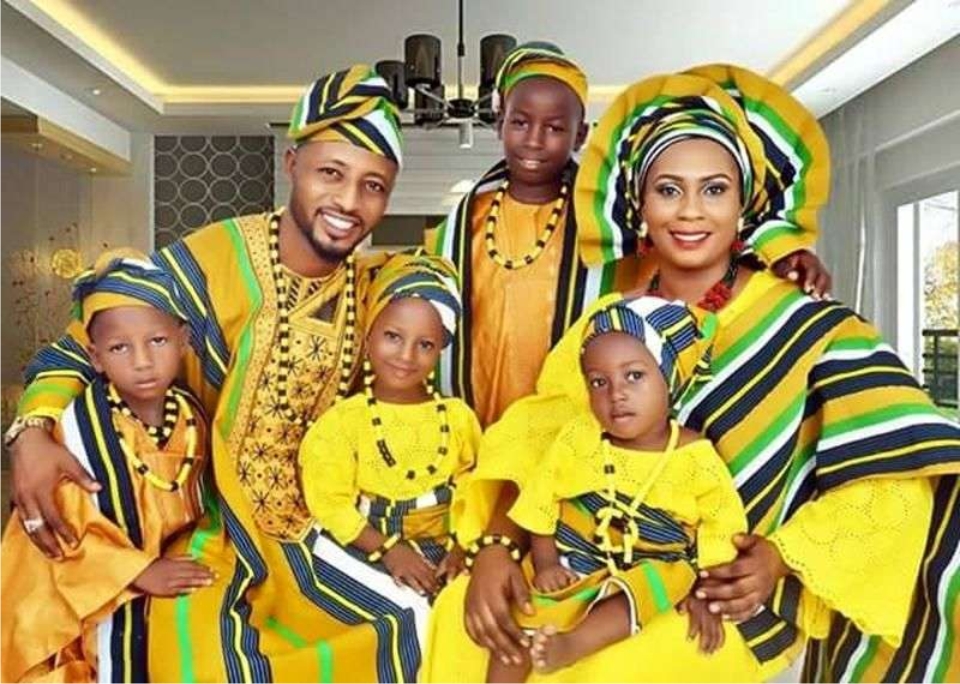
They also specialized in fishing and farming.

Different qualities is one of their major strength as a country. Giant of Africa.


